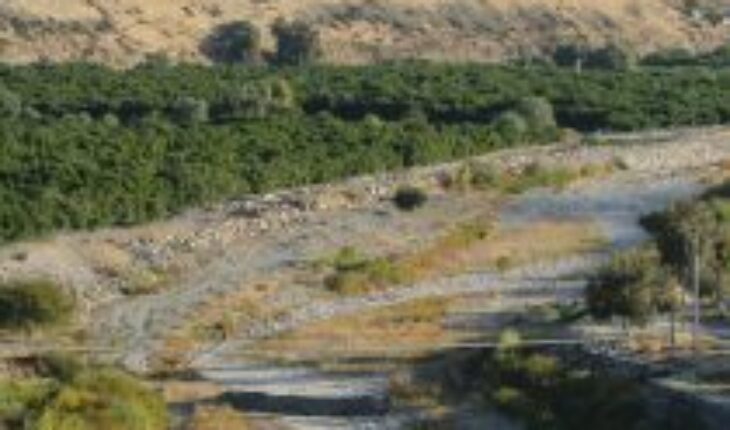As a result of the severe drought that plagues much of the country, citizen stories and demands have emerged that demand an end to agricultural crops due to an alleged excessive water consumption and a negative environmental impact, leaving aside the scientific evidence when looking for solutions. In this context I would like to refer to avocado cultivation — which as an agronomist I have been scientifically analyzing for decades — which I believe has been unfairly criticized, but which has seen a respite with new analyses that contribute to the debate.
A few weeks ago the media positively covered the results of a study that analyzed the production of these crops in Chile, carried out by the Regional Water Center for Arid and Semi-Arid Zones of Latin America and the Caribbean (CAZALAC), an organization sponsored by Unesco. In addition to highlighting how valuable it is to have this type of studies for an informed and honest discussion, the most relevant are their conclusions based on empirical work in sample areas of high representativeness.
The study concludes that the cultivation of Hass avocados in Chile makes an “efficient and adequate” use of water, product of the enormous effort to technify irrigation in almost 100% of its planted area. Along with this, it shows that its plantations are capable of supporting and helping in the maintenance of a native ecosystem that is at risk of degradation as a result of megadrought. Although it changes the existing vegetation on the slope, its long-term replacement is positive since it generates a soil with greater vegetation cover that presents a high biodiversity and a high volume of leaf litter, which reduces the risk of erosion and captures enormous amounts of CO2. And with this, the advance of desertification is stopped, which native species are not able to counteract on their own.
In environmental terms, being a species perennial, the absorption of CO2 from the atmosphere and the subsequent release of oxygen by adult avocado plantations has a positive ecological effect throughout the year, which helps to counteract the greenhouse effect in a way that is superior to that of native species.
The results of CAZALAC reaffirm other studies in the field such as the work carried out by INIA in 2010 and 2011. This body measured the carbon footprint of these fruit trees determining that they have a positive balance, which is relevant in a context of climate change since it contributes to reducing greenhouse gas emissions. In a second study he measured the water footprint of avocados in different regions (IV, V and RM), showing that their water consumption is on average 420 liters per second, an average water footprint similar to other fruit trees, which is well below other crops; and it is even much lower than other consumer products such as processed foods and clothing, which have not had the same attention.
Along with this, it is equally relevant to highlight that the research shows that avocados represent an economic activity that creates permanent work, in compliance with the guidelines of the United Nations Convention, which acquires special relevance in the current economic scenario marked by the pandemic.
Undoubtedly, there is still a way to go in the water management of agriculture given the context of megadrought. However, the existing scientific information must be taken into account, which in this case corroborates that avocado cultivation is environmentally sustainable. Debates have to take place, but in an informed manner. As we well know, many times data kills stories.
The content expressed in this opinion column is the sole responsibility of its author, and does not necessarily reflect the editorial line or position of El Mostrador.





